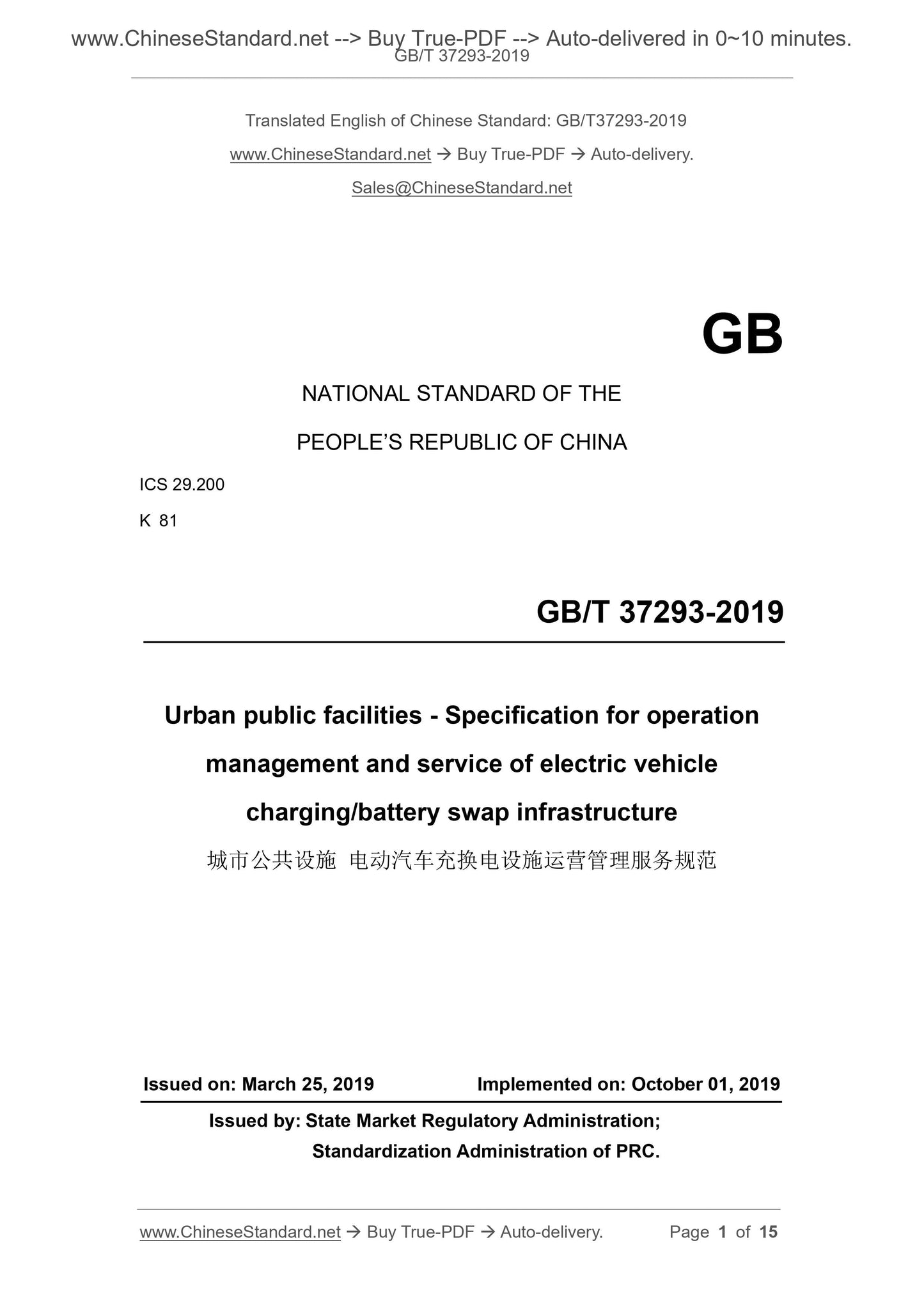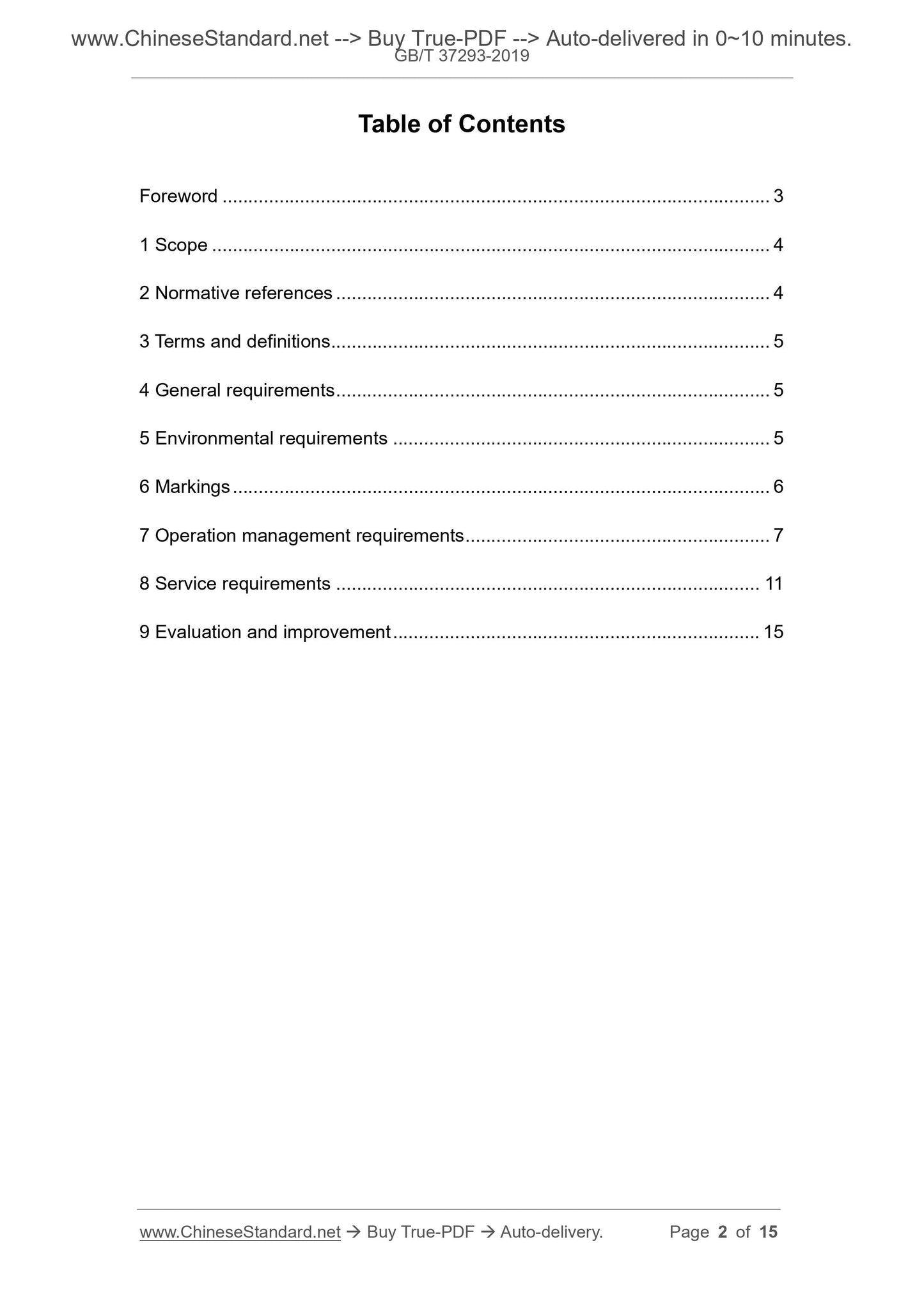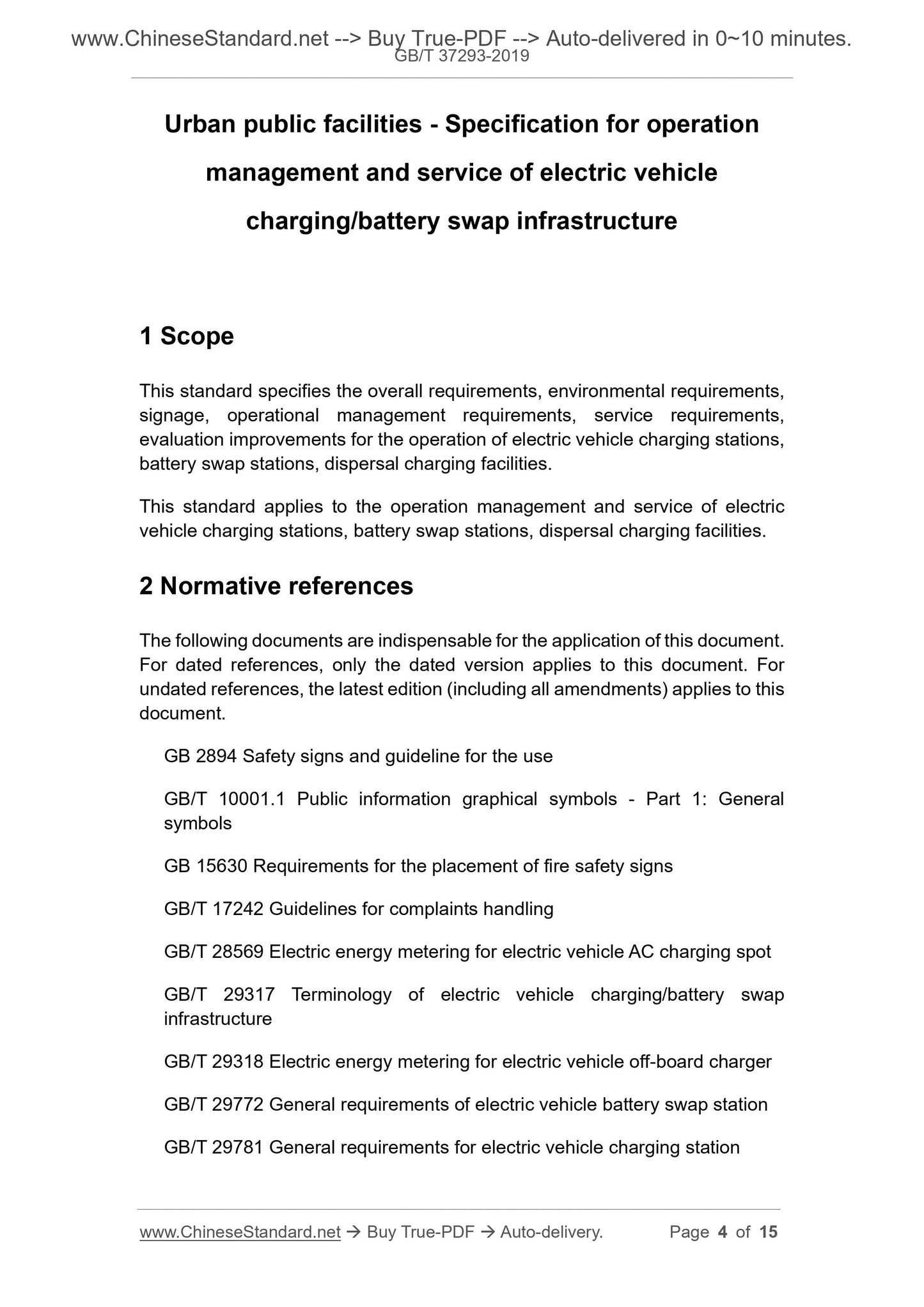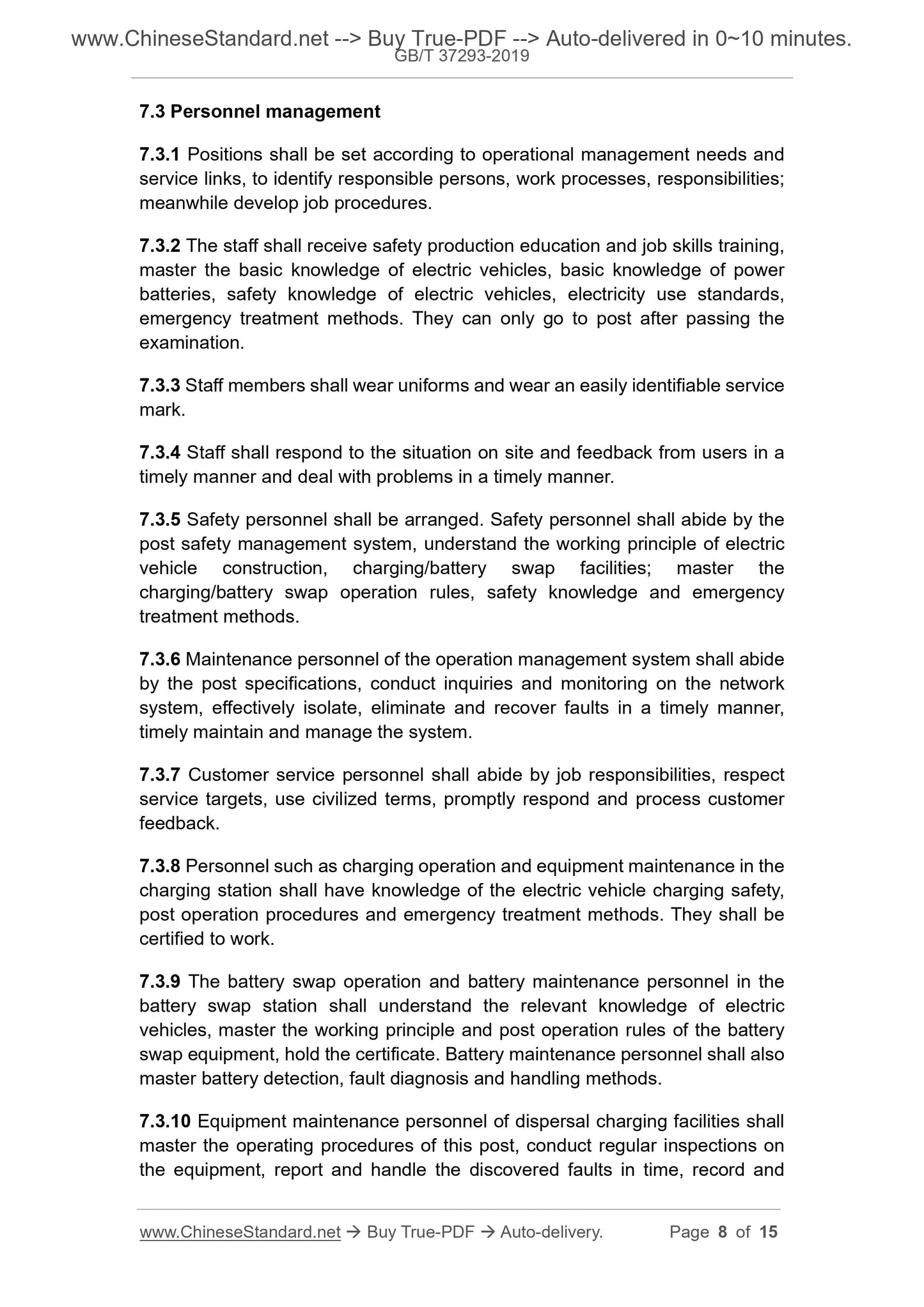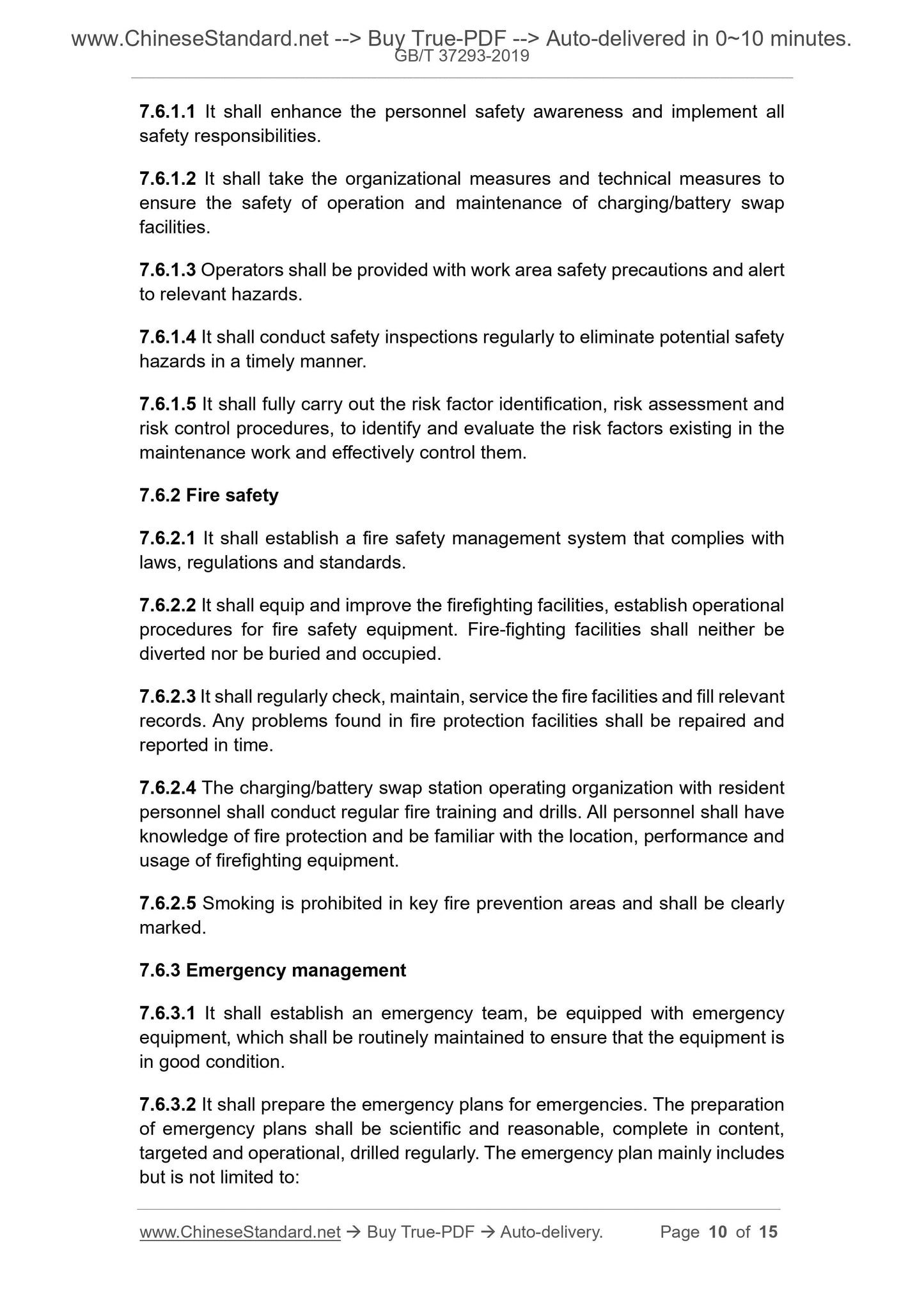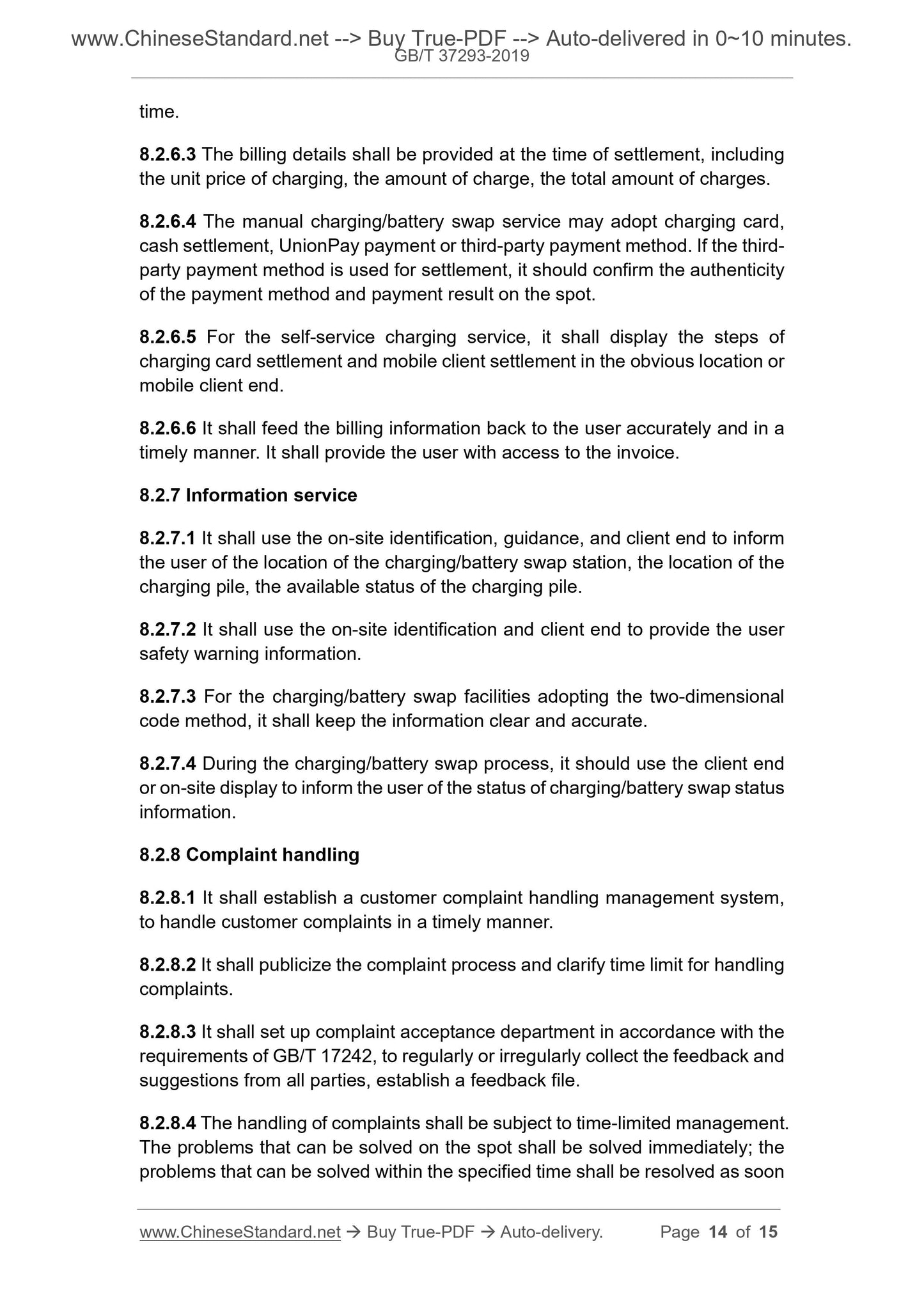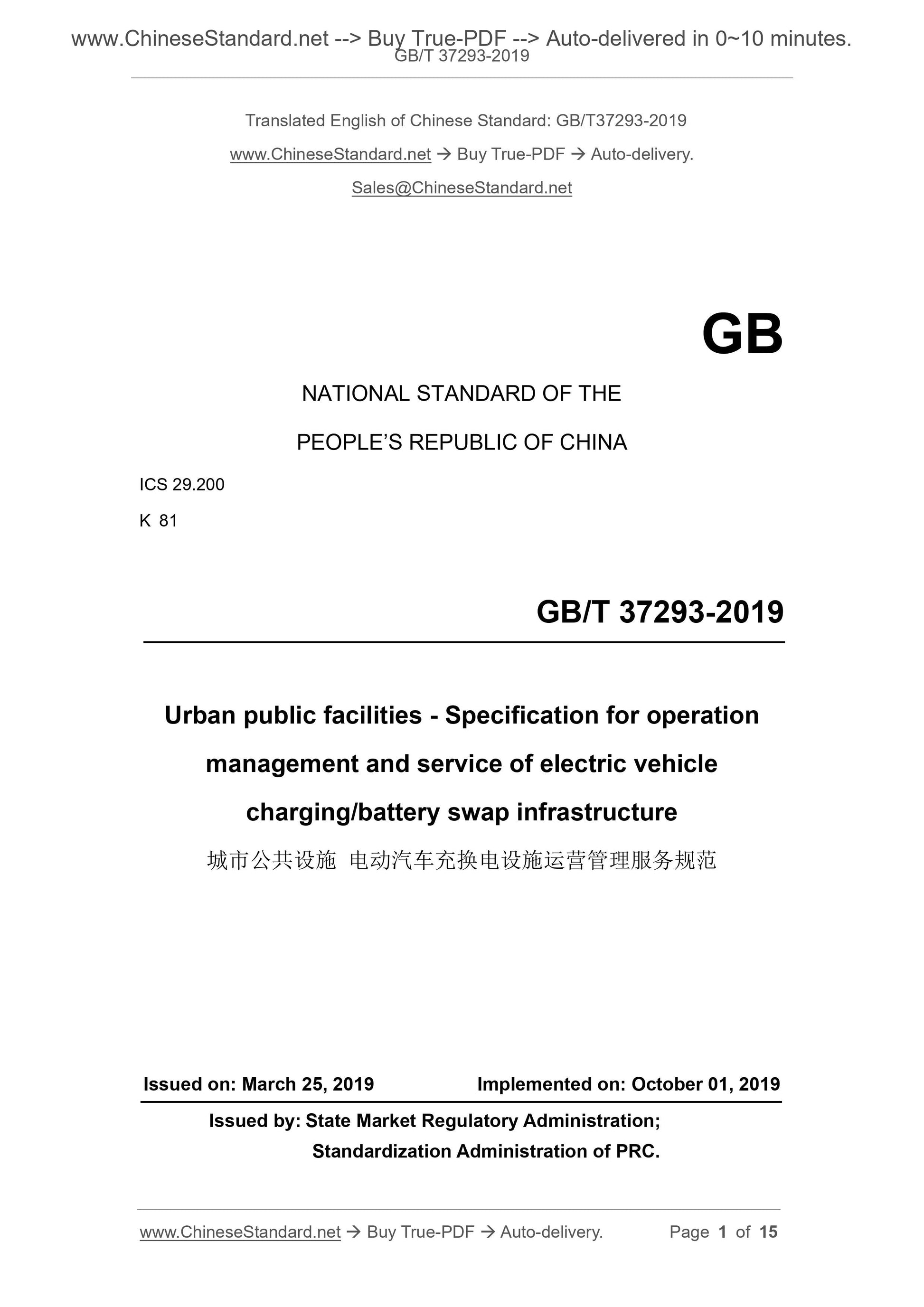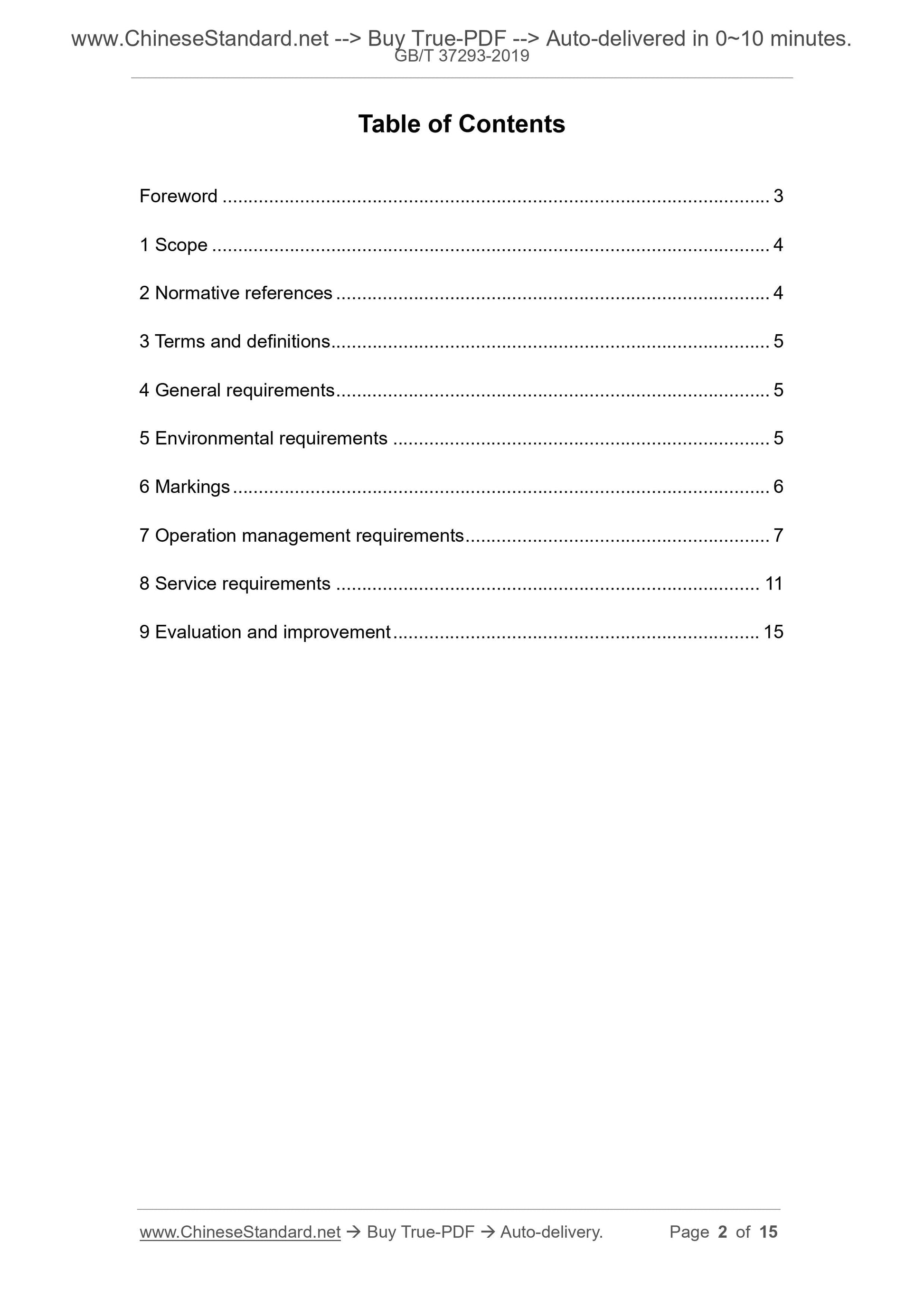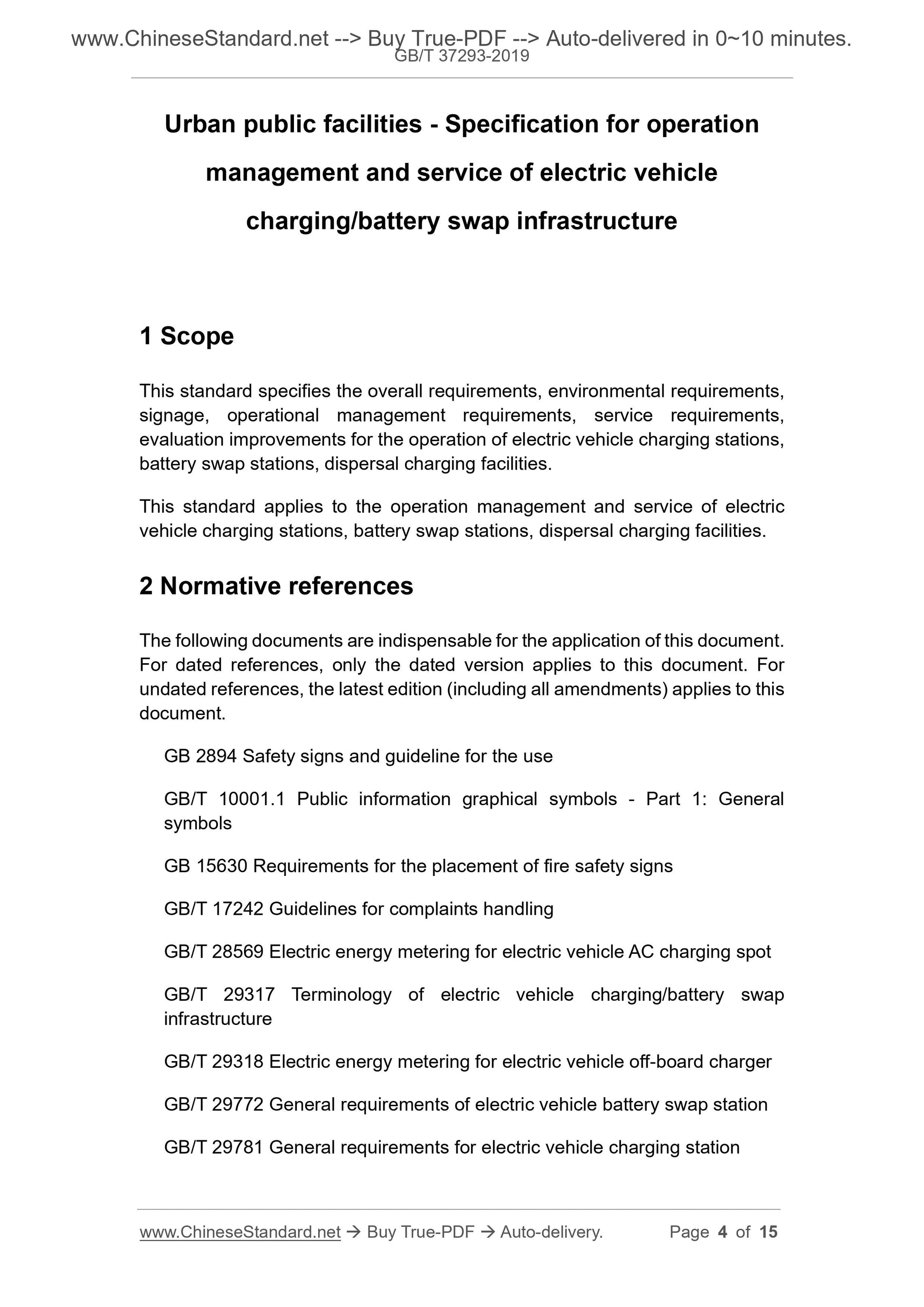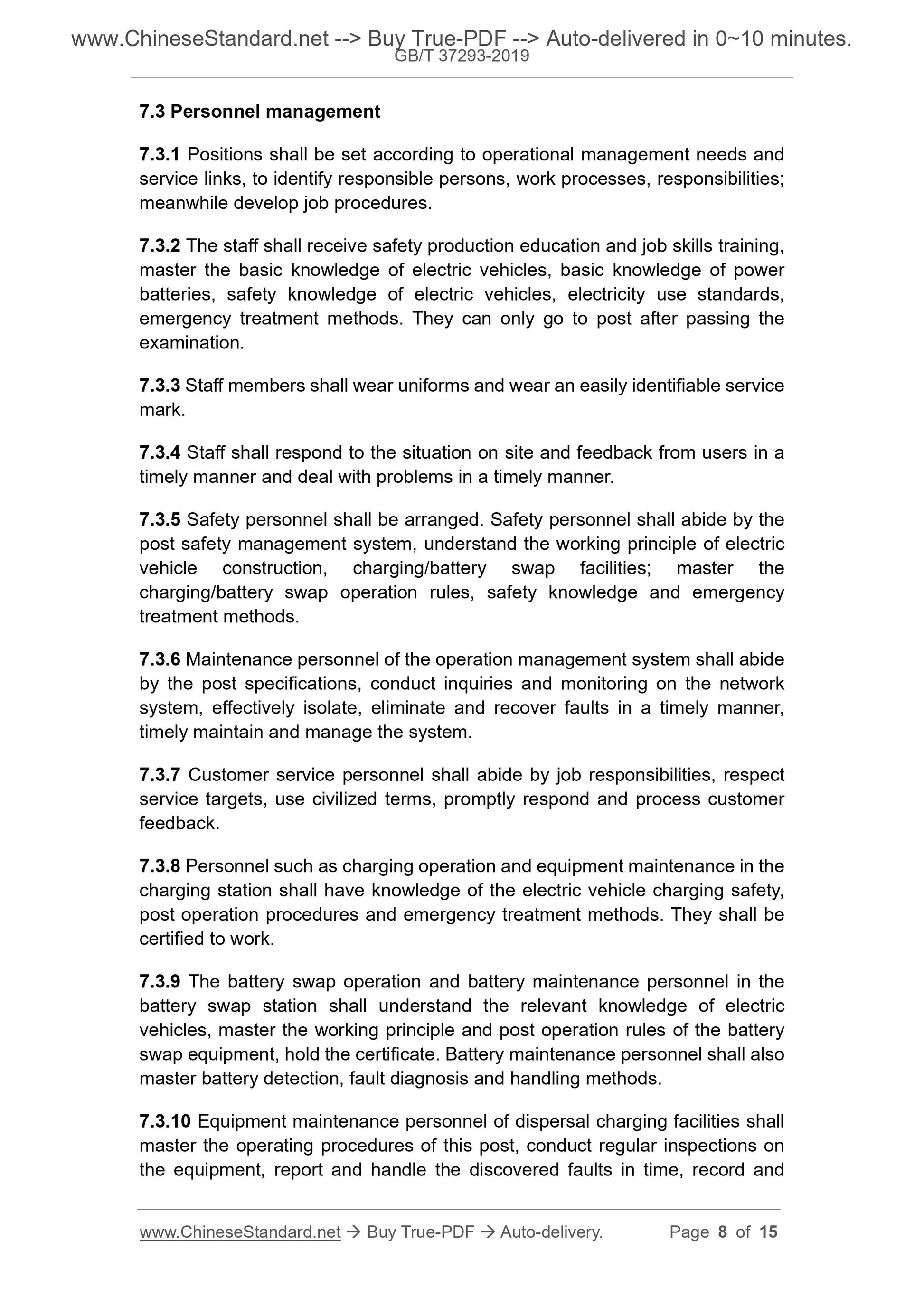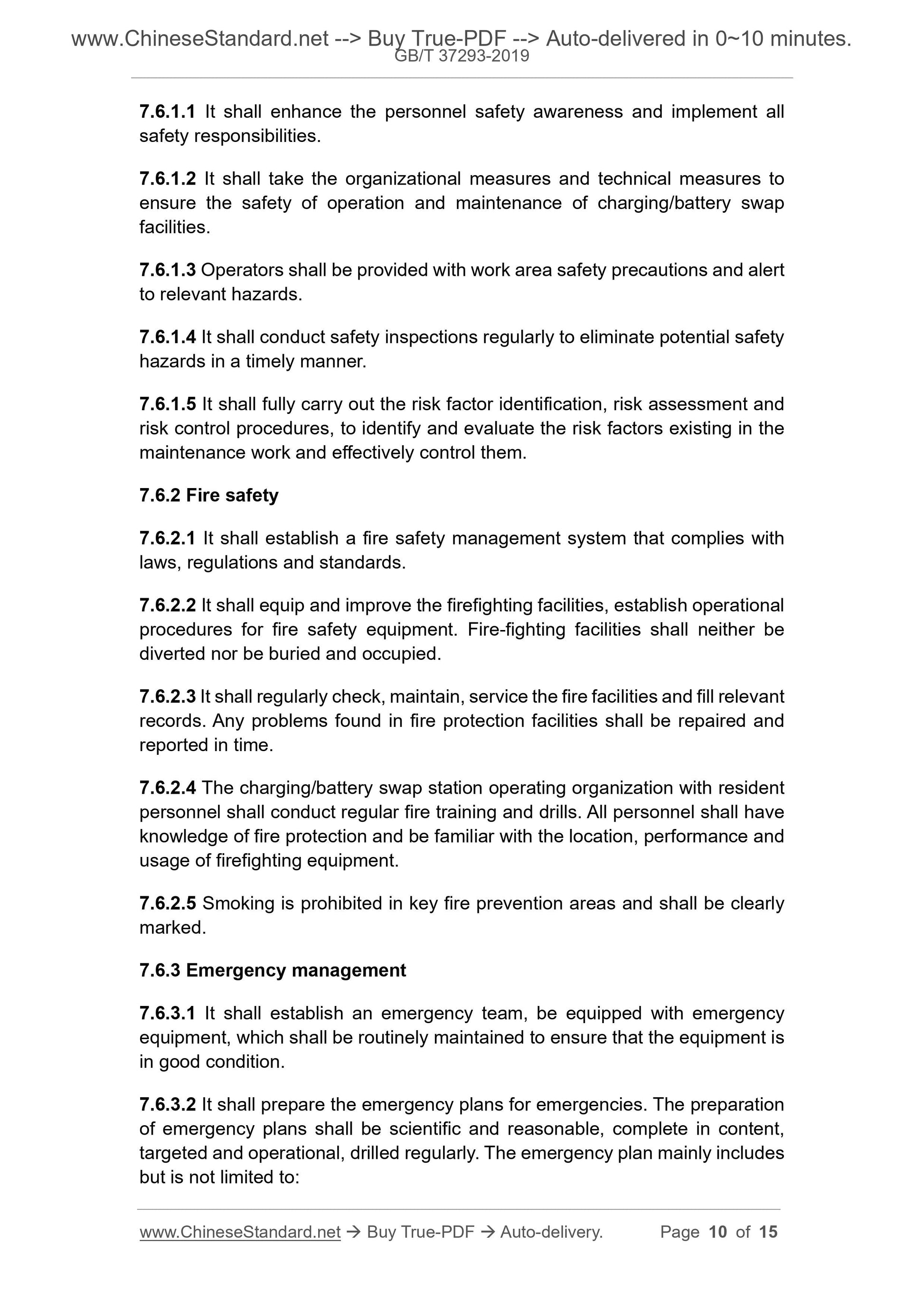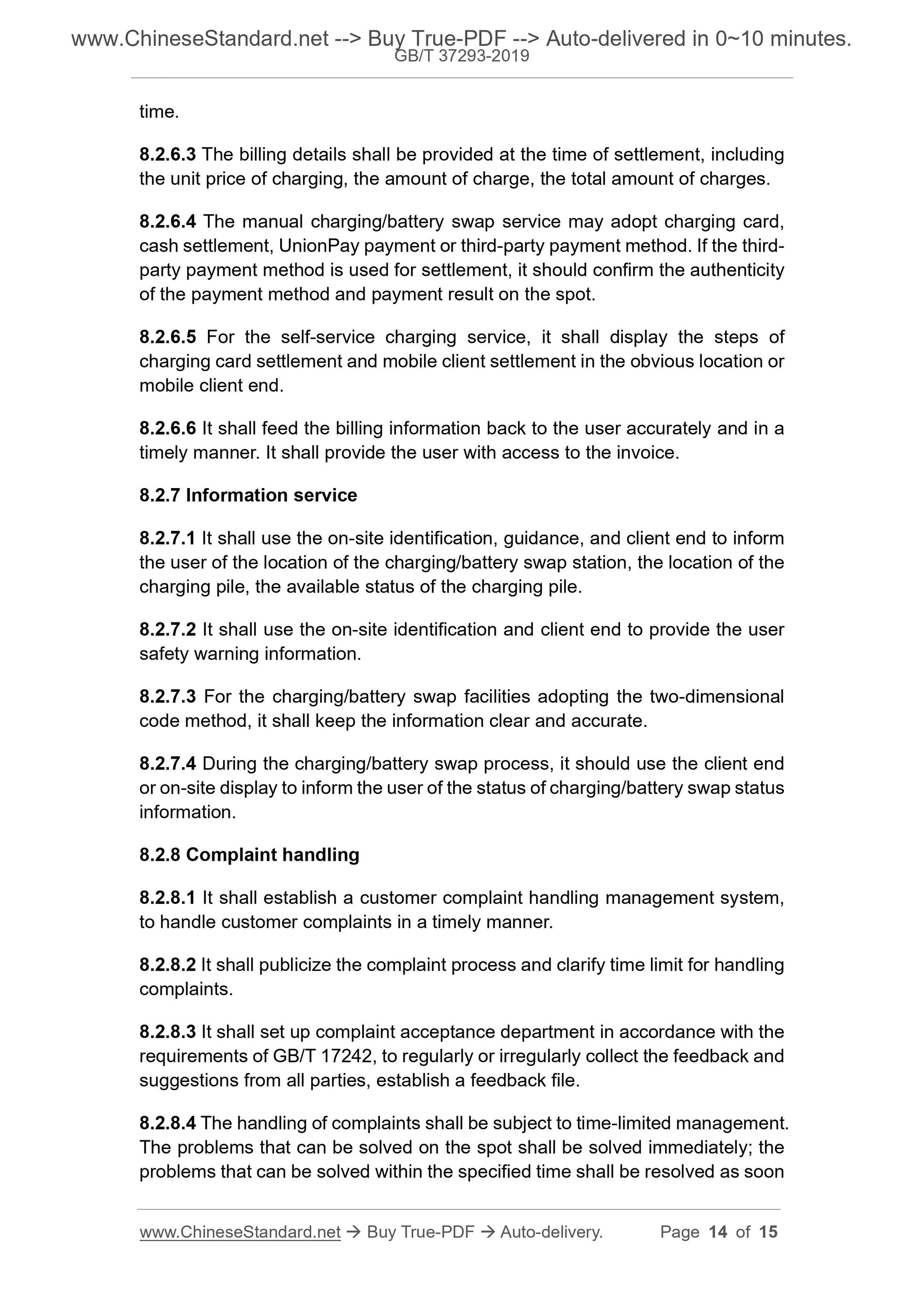1
/
of
6
www.ChineseStandard.us -- Field Test Asia Pte. Ltd.
GB/T 37293-2019 English PDF (GB/T37293-2019)
GB/T 37293-2019 English PDF (GB/T37293-2019)
Regular price
$150.00
Regular price
Sale price
$150.00
Unit price
/
per
Shipping calculated at checkout.
Couldn't load pickup availability
GB/T 37293-2019: Urban public facilities - Specification for operation management and service of electric vehicle charging/battery swap infrastructure
Delivery: 9 seconds. Download (and Email) true-PDF + Invoice.Get Quotation: Click GB/T 37293-2019 (Self-service in 1-minute)
Newer / historical versions: GB/T 37293-2019
Preview True-PDF
Scope
This standard specifies the overall requirements, environmental requirements,signage, operational management requirements, service requirements,
evaluation improvements for the operation of electric vehicle charging stations,
battery swap stations, dispersal charging facilities.
This standard applies to the operation management and service of electric
vehicle charging stations, battery swap stations, dispersal charging facilities.
Basic Data
| Standard ID | GB/T 37293-2019 (GB/T37293-2019) |
| Description (Translated English) | Urban public facilities - Specification for operation management and service of electric vehicle charging/battery swap infrastructure |
| Sector / Industry | National Standard (Recommended) |
| Classification of Chinese Standard | K81 |
| Classification of International Standard | 29.200 |
| Word Count Estimation | 10,189 |
| Date of Issue | 2019-03-25 |
| Date of Implementation | 2019-10-01 |
| Issuing agency(ies) | State Administration for Market Regulation, China National Standardization Administration |
Share
